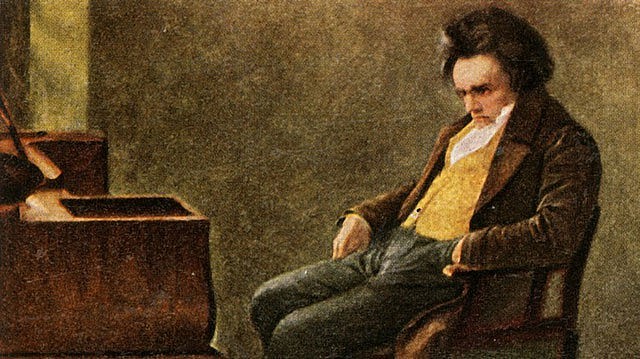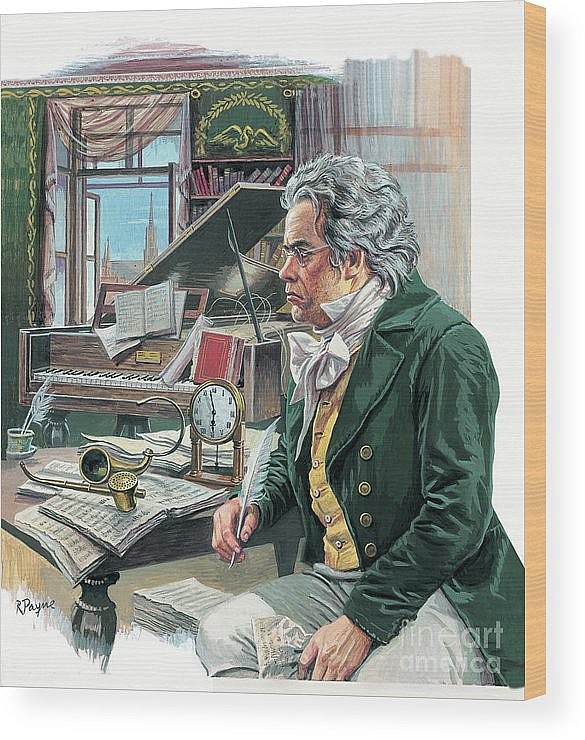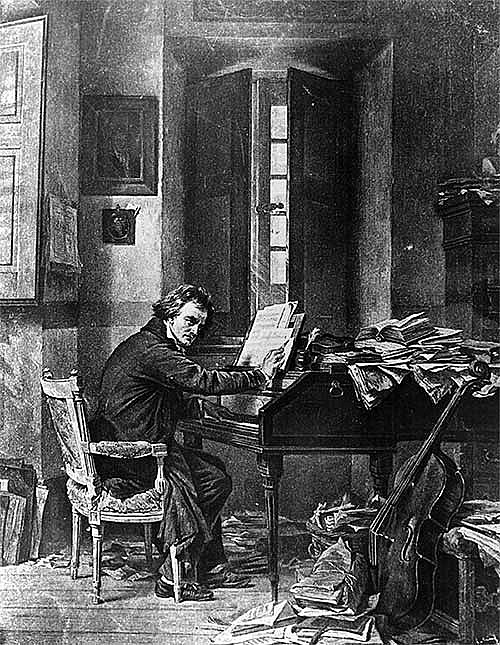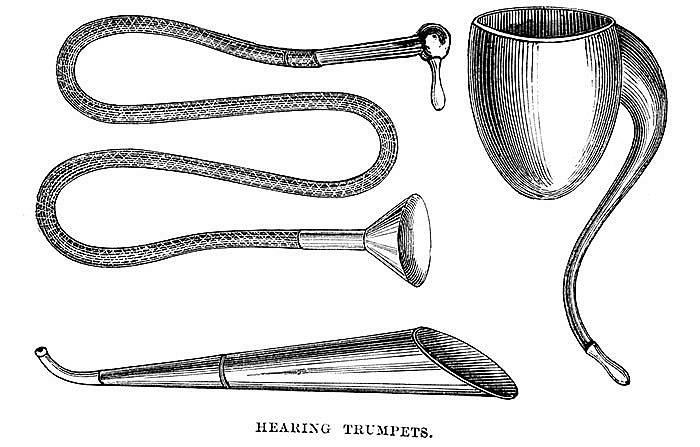Why Did Beethoven still Compose Music While Deaf?
 |
| What did Beethoven do when he became deaf? |
Who is Beethoven?
German composer Ludwig van Beethoven (1770 - 1827) was one of the greatest musicians in the world. From a very young age, he showed his genius and is considered the most famous musician since the time of Mozart.
But when he turned 30, Beethoven had an unbelievable event for a musician, which was deafness.
Beethoven was baptized on December 17, 1770 (no one is sure of his date of birth, usually thought to be December 16).
He died in 1827 at the age of 56. But until his death he still played an important role in Western culture, even more so.
Why was Beethoven Deaf?
 |
| Why was Beethoven deaf? |
Around the age of 26, Beethoven began to hear frequent buzzing and ringing in his ears. In 1800, at the age of 30, he wrote a letter from Vienna to a childhood friend confiding: "In the last three years, my hearing has become progressively weaker. In the theater, I have to get very close to the new orchestra. I can hear the performers. I can't hear the high notes of the instruments and the singer's voice."
As a musician, Beethoven tried to keep his affairs a secret from even those closest to him, fearing his career would be ruined if anyone found out. He avoids social interaction for fear of revealing his illness, and at the same time he is afraid of facing it himself.
Beethoven is said to have still been able to hear some speech and music until 1812.
When Ludwig van Beethoven's legendary Ninth Symphony was first performed in 1824, the composer had to turn around to see the applause of the audience - he could no longer hear their applause.
Beethoven had sensed his hearing difficulties decades earlier, possibly in 1798, when he was 28 years old.
By the age of 44 or 45, he was completely deaf and could no longer speak. Therefore, he had to write down what he wanted to discuss with colleagues, guests and friends.
The exact reason why the talented composer lost his hearing has always been the subject of controversy. Many theories suggest that this was a side effect of syphilis or lead poisoning, typhus, or even a rumor that he went deaf due to his habit of soaking his head in cold water to keep himself awake.
Even Beethoven himself could not explain why he lost his hearing. At one point he claimed that this was the result of a stroke in 1798, alleging that it was all due to stomach ailments.
After the musician died, an autopsy was performed. It was discovered that he had a bulging, severely damaged inner ear.
Excessive drinking could be the final problem that caused Beethoven's health to decline and lead to death. After being bedridden for many months, he died in 1827, as a result of many suffering from liver and kidney disease, peritonitis, abdominal ascites, and encephalitis. An autopsy revealed further symptoms of cirrhosis of the liver, dilated hearing organs and nerves related to the ear.
Ferdinand Hiller, a young composer, cut some of Beethoven's hair as a precious memento - a common practice of the time. This hair has been kept in the Hiller family for nearly a century, then somehow arrived in a small fishing village in Gilleleje during Nazi control of Denmark, and fell into the hands of a local doctor, Kay Fremming. The doctor who saved hundreds of Jewish lives escaped to a village 10 miles from the Øresund Strait, a natural border between Denmark and Sweden. One theory is that one of the Jews, perhaps related to Ferdinand Hiller, gave Dr. Fremming a handful of Beethoven's hair or used it in return for his help.
The doctor gave this bundle of hair, which consisted of 582 strands, to his daughter, who later put it up for auction in 1994. An Arizona urologist named Alfredo Guevera bought 160 strands for the price. 7,000 USD. The remaining 422 strands were donated to the Ira F. Brilliant Center for Beethoven Research at San Jose State University in California.
Guevera and Ira Brilliant, a collector and philanthropist, pursued the question of why Beethoven was deaf. They put brown, gray and white hairs through imaging, DNA, chemistry, forensics and toxicology tests. It showed no sign of morphine, mercury or arsenic but showed abnormal lead levels, and only indicated the possibility of lead poisoning, which could have led to Beethoven's deafness. though it doesn't help explain his illnesses. In addition, many studies have suggested that he probably drank from leaded glasses. It should be noted that alcohol of that period often had lead added as a sweetener.
 |
| Beethoven could compose with his imagination |
The journey of Beethoven's hair and medical analysis became the subject of a best-selling book "Beethoven's Hair: An Extraordinary Historical Odyssey and a Scientific Mystery Solved" by Russell Martin.
More recently, in 2013, a team of ear surgeons — Michael H. Stevens, Teemarie Jacobsen, and Alicia K. Crofts of the University of Utah — published an article about Beethoven's health history in the journal The Larynoscope. They also concluded that "Beethoven's chronic alcoholism with lead is a more likely explanation for his deafness than other causes."
Having said that, many doctors and many pathologists are not satisfied with this interpretation. For example, in 2016, a team of three doctors, Avraham Z. Cooper, Sunil Nair, and Joseph M. Tremaglio at the Beth Israel Medical Center and Harvard Medical School in Boston, pointed out in a brief article for the American Journal of Medicine the need for "a unified diagnosis to explain Beethoven's syndrome of internal organs, including deafness". They proposed Cogan syndrome, an immune disorder marked by systemic inflammation of blood vessels and including inflammation of organs such as the liver, intestines, and joints, and possibly vasculitis spreading to blood vessels to the liver. ears will lead to deafness.
How did Beethoven Creat Music When He Couldn't Hear It?
It is clear that for a musician, being deaf tormented the German composer for half his life. It was not until 1822 that he gave up seeking treatment for his hearing and accepted the painful truth. Beethoven also used a number of hearing aids, but at the time, their use was not very effective.
Despite this, Beethoven continued to compose and even became a resounding success, his career unaffected even though he could no longer hear it. It is not difficult to explain this. Scientists say Beethoven listened to and played music for the first three decades of his life. More than anyone else, he knows all the rules of instruments and vocals, how music will sound. In addition, his deafness was a gradual decline in hearing over a period of time, rather than sudden hearing loss. So the musician can still picture in his head what his works will be like.
 |
| Instruments, hearing aids in the 19th century |
Beethoven employees once told me that when his hearing became worse, he would sit at the piano, put a pencil in his mouth, and touch the other end to the piano's soundboard to feel it. vibration of each note. During the last 20 years of his life, Beethoven composed music with his memory and imagination, not with his ears. Not only continued to compose music, Beethoven also performed and conducted orchestras after becoming deaf.
Beethoven's mastery of music was undeniable, even if he had difficulty being deaf. However, although the quality has not decreased, modern experts say that deafness still has an influence, changing Beethoven's music.
In his early works, when he could still hear the full range of frequencies, he frequently used high notes. As his hearing deteriorated, Beethoven began to use lower notes more because these were the notes he could hear more clearly. High notes returned to his compositions towards the end of his life, indicating that he had masterfully "heard" the work to form in his imagination.
 10 Biggest Historical Mysteries In The World That Can Not Be Solved 10 Biggest Historical Mysteries In The World That Can Not Be Solved Not all mysteries will have an answer for it, and some will remain secrets forever. Here is the 10 biggest historical mysteries in the world ... |
 Top 10 Universe’s Mysteries That Science Can’t Explain Top 10 Universe’s Mysteries That Science Can’t Explain Universe has many interesting facts, secrets and mysteries that human has not discovered yet. Here is 10 universe's mysteries that even scientists have a hard ... |
 Fact-Check: Top 15 Mysteries Behind the Famous Artworks of All Time Fact-Check: Top 15 Mysteries Behind the Famous Artworks of All Time Thanks to modern technology and hundreds of years later,, we have discovered the "top secrets" hidden in these artworks such as painting, statue, etc. |























